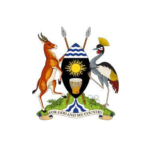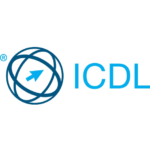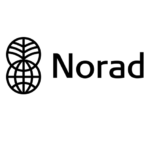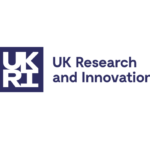Programme Name and Duration The programme name is Bachelor...
Read MoreWelcome to SCIT
School of Computing and Information Technology

Dr.Joseph Kibombo Balikuddembe. Dean- SCIT
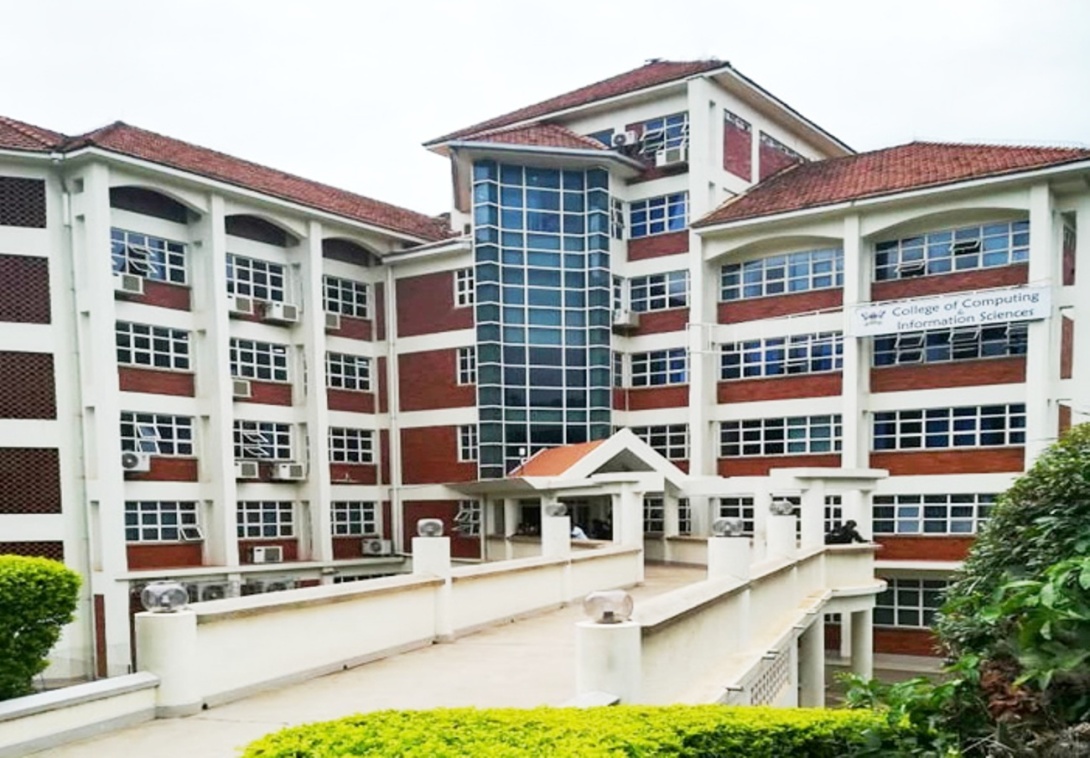
CIT was established by Makerere University Council on December 13, 2010, by upgrading the Faculty of Computer Science into a School with four Academic Departments; Computer Science, Networks, Information Technology and Information Systems.
Dean's Message
We are glad you are here at the School of Computing and Informatics Technology (SCIT). I am quite proud of our school’s long history of offering instruction in computing that is based on real-world experience. We are ardent believers in the idea that innovation and technology play a crucial role in the process of growth. We must never lose sight of the reality that increasing productive capacity depends on the growth of technology. Industry suffers from considerable innovation and technical gaps, and emerging countries, notably those in Africa, frequently fall behind. These gaps must be filled for any economy to catch up through the advancement of knowledge and inventive skills as well as through pushing the boundaries of technology.
As a technologically oriented school, we are strategic in providing talent that can support a strong innovation ecosystem. Our main priorities are the development of competencies and technological transformation. This includes institutional structures that allow for the development of adaptable skills that are essential for learning at the national and sectoral levels.
Our undergraduate and graduate programs equip our students with the moral complexity and intellectual rigor needed to tackle the challenges of a crucial period of societal transition. Additionally, we train graduates who can quickly transition to creative methods for problem-solving and who favor tasks that are complex and cognitively demanding. In other words, we train our students to be self-assured, agile innovative global citizens. The decades of experience-based knowledge and leadership that our faculty bring to the classroom has been essential to the success of our students and thousands of alumni at SCIT. The expertise and research contributions of our academics, who are thought leaders in their fields, continue to spur change and have a positive social impact at the university, in the community, and around the world.
I encourage you to browse the variety of opportunities SCIT offers on our website. You can learn about our academic programs on our website, as well as observe how our teachers and students collaborate on research and/or service-based initiatives and interact with the communities that create our collective existence. I urge you to get in touch with us so that we can support you while you pursue one of the school’s academic programs.
Dr. Joseph Kibombo Balikuddembe (PhD)
Dean
dean.scit@mak.ac.ug / joseph.balikuddembe@mak.ac.ug
About SCIT
SCIT offers a total of 15 programmes at bachelors, Masters, PhD and Postgraduate levels. Following the merger of Information Technology and Information Systems programs in 2017, the school remained with three out of four undergraduate programs. The bachelor of information systems (BIS) and the bachelor of information technology (BIT) programs were merged to form bachelor of information systems and technology program (BIST). The Information Technology department has no undergraduate program. The list of programmess offered include:
- Bachelor of Science in Computer Science
- Master of Science in Computer Science
- Postgraduate Diploma in Computer Science
- PhD in Computer Science.
- Bachelor of Information Systems and Technology,
- Master of Science in Information Systems,
- Postgraduate Diploma in Information Systems,
- PhD in Information Systems
- Masters in Information Technology (MIT)
- PhD in Information Technology (Ph.DIT)
- Post Graduate Diploma in Information Technology (PGDIT).Post Graduate Diploma in Information Technology (PGDIT)
- Bachelors in Software Engineering
- Masters in Data communication and Software Engineering
- Post graduate diploma in Data communication and Software Engineering
- PhD in Software Engineering.
Our training is influenced by our research, which creates a stimulating and supportive learning environment. Our researchers’ software innovations are addressing important domestic and global problems, and we firmly think that general computing and informatics principles are fundamental to the development of our society. To develop solutions that affect society and business, we engage in interdisciplinary research. We conduct extensive research in specialized areas such as:
- The Software Systems Security Centre (SSC): It spearheads research and innovations geared towards improving the quality of software products and services. The SSC also nurtures prospective software products and services to commercialization in partnership with selected industrial partners.
- Wireless Networks Systems and Systems Security (NetS) Group: This Group focuses on designing affordable, robust and energy-efficient networked systems and digital security solutions that improve livelihoods. Current projects are in the areas of Wireless Sensor networks for environment monitoring, Network Security and Malware Management, Security Protocols and authentication systems.
- Artificial intelligence Research Group. This Group leverages cutting edge computational methods and applies them to solving real-life problems using Artificial Intelligence and Data Science techniques in the fields of health and agriculture. Artificial Intelligence techniques have been used to automate several expert tasks and processes. Current projects include; disease and pest control on cassava using artificial intelligence, 13 automated techniques of malaria diagnostics, and automated auction market for small holder farmers
- The Development Informatics (DI) Research Group. This is a multi-disciplinary Research Group that focuses on the study and creation of Information Systems that address problems in a socio-economic development context. The field of Informatics, in general, studies the intersection of people, information, and technology systems. Themes of the DI Research Group include Human-Computer Interaction (HCI) Education and research in developing countries, Usability and User experience (UX) design and evaluation, CoDesign/Participatory Design, Digital inclusion, and E-Services.
- Health Informatics: This group conducts cutting edge research based on observations made and demands in the healthcare ecosystem in Uganda and beyond and particularly addresses the broad research problem on the “disconnection between health informatics solutions and society”. The aim is to answer the broad research question on “how Health Informatics research and development can facilitate and stimulate actualizing of better health outcomes for society (more than 40 million people in Uganda and beyond) The application of these ICT tools embraces the promise of making healthcare service provision more beneficial and valuable. The concept of Health Informatics (HI) refers to the designing and development of health information systems and technologies, applied in health care to improve health care service delivery, management and planning in terms of better quality and efficiency (control cost for more availability)
- Informatics and visualization: The research group in Informatics and Visualization, and the Advanced Modeling and Simulation make up the main research directions pursued in the department of Information Systems of the School of Computing and Informatics Technology of Makerere University. Informatics focuses on efficient and effective creation, management and utilization of information using ICT in the modern world. Visualization on the other hand focuses on the use of graphic to visually present and explore data/information solely for gaining more insight to complex data. The Research group seeks to find ways of applying information science principles, information technology, and communication to a wide range of disciplines, with a main focus of presenting and enhancing understanding of data, information, and knowledge discovery processes. The Research group addresses both theoretical and practical aspects of informatics.
- Internet of Things (IoT): Our efforts started in 2013 while we were implementing the WIMEA project thus our lab was first called the WIMEA lab. Over the years we have undertaken several interesting projects focused on building innovative Internet of Things (IoTs) artifacts that address societal challenges.
We are an interdisciplinary team of researchers comprising several specialisations including computer scientists, software engineers, meteorologists, information scientists, computer engineers, telecom engineers, entomologists and environment scientists. Our team is continuously growing to include specialists needed to implement the project at hand.
We identify community challenges and address them through investigative and development work together with our students. The internet transformed the world and we know that the internet of things being one of the critical 4th Industrial Revolution technologies, will contribute enormously to shaping our shared future.
The school provides a welcoming environment for visitors and personnel from all over the world. We are committed to incorporating openness, diversity, and equality into all we do.
Academic engagement and partnerships
The lack of skilled workforce is a problem on a worldwide scale, but it is particularly problematic for Africa’s development. Global academic collaborations have previously been mentioned as potential solutions to this development constraint. We are opening our doors to embrace these partnerships. Through these alliances, SCIT is positioned to establish global alliances that are impactful, equitable, and sustainable.
As a school, we think that now, more than ever, is the moment for academia to collaborate with other regional and international organisations to address the problem. In this area, we concentrate on welcoming joint grants proposals that promote ideas that can work in our local context and scale to address well-known global challenges where technology may help. In order to maintain sustainability, we see ourselves as a good testing and validation ground for the suggested research ideas.
We also encourage industrial tech experts to work with us in the classroom by giving guest lectures. We want our graduates to have a solid understanding of the most recent technological industry trends and how education can support them. Given the dynamic nature of our profession, we expect to produce graduates using this technique who not only convey current and relevant information but also have better practical skills and a clear career path. Thus, in this sense, we welcome industry partners to participate in the curriculum review process.
If you think you would want to join us in realizing this vision, please get in touch with.
Since its founding in 1985, the School of Computing and Informatics Technology (SCIT) has evolved significantly. In 1985, it was founded as the Institute of Computer Science, and in 2004, it changed its name to Faculty of Computer Science. The Faculty of Computer Science was upgraded by the University Council to the current School of Computing and Informatics Technology in December 2010. Our school has four academic departments; Computer Science, Networks, Information Technology and Information Systems.
The vision of SCIT is to be a leader in computing and informatics technology education, research, and knowledge transfer to the communities. In terms of technology, we are among the best researchers and teachers on the continent. In an endeavor to address societal issues, SCIT conducts research on cutting-edge computing technologies, collaborates with partners in the public and private sectors to put those innovations to use, and produces highly skilled computing graduates.
Our students include some of the most gifted and employable computer graduates in the country. Our environment of trust and encouragement allows our student to succeed. We actively try to contribute to the education of the next generation of computing and informatics scientists, and our alumni serve as role models in respective fields. We provide all the education needed for our students to make a constructive contribution to society. Thanks to our culture of professional development and mentoring, they have the opportunity to pursue their objectives as they make the transition from being students to working adults. We support our students’ objectives by providing extracurricular programs that cover all parts of computing. In addition to our major degree programs, we promote their potential and creativity by encouraging project work.
Departments
The School of Computing and Information Technology has four (4) Departments; namely
The Department of Computer Science
The Department of Computer Science is the pioneer department of the then Faculty of Computing and Information Technology that later evolved into the School of Computing and Informatics Technology. It is currently headed by Assoc. Prof. Engineer Bainomugisha. It is responsible for running programs in the area of Computer Science. The Department of Computer Science offers quality teaching and research together with outreach in the broad field of computer science through the following programmes; Bachelor of Science in Computer Science, Master of Science in Computer Science, Postgraduate Diploma in Computer Science and PhD in Computer Science. Members of the department participate in and support research through the following research groups: Artificial Intelligence & Data Science Lab and Software Systems Centre
The Department of Information Systems
The Information System (IS) Department is one of the four academic departments at the School of Computing and Informatics Technology. The department provides both undergraduate and postgraduate courses. Some areas of the study and research in IS include System Analysis and Design, Data warehouses, Databases, Health Informatics, Management Information Systems and Decision Support Systems. These provide students with a thorough knowledge of the field thus providing an enduring foundation for future professional growth. IS students learn to become problem solvers in organizations, institutions, the economy and society. The department currently has two dynamic research groups namely: Simulation and Modeling Group and Visualization group.
The department has 15 full-time academic staff and a diverse collection of part-time faculty to support the teaching needs for‚ the IS student community. Administrative staff members supervised by the Head of Department ensure the smooth functioning of the department operations.
It offers programs of Bachelor of Information Systems and Technology, Master of Science in Information Systems, Postgraduate Diploma in Information Systems, and PhD in Information Systems.
The Department of Information Technology
The department strives for the best through its mission:
- Teach academic programs that relate to the dynamic and changing needs of graduates in an information society;
- Advancement of IT knowledge and application through state of the art research;
- Support IT-based advancements in both the industry and society
Established in 2005 as one of the four departments within the School of Computing and Informatics Technology, the Department of Information Technology is helping Makerere University to gain national height in the area of Information Technology. This department has been in existence for four years now. In the four years so far, we have tried to work towards exceeding all our expectations and accomplishments. Particularly, the students’ achievements, the rising reputation of our department and the faculty at large, as well as the thrilling partnerships we have made with the international academia, government and industry friends, make our pride.
In the years that follow, and in relation to the Makerere University strategic plan (2020-2030) our department seeks to shift to the next level by focusing on our ability to make IT a fundamental part of the learning enterprise on the Makerere University campus. More so, we are collaborating with various academic and business world partners to effectively incorporate IT into diverse disciplines. To this end, we need your involvement in order to achieve our aims.
As a department, our goal is to continuously build on our past four years’ achievements, at the same time continuously expand our high-quality program that not only includes outstanding department staff, a highly-developed curriculum, exceptional facilities, growing and recognized research but also challenging students at different levels.
The department offers programs, the Masters in Information Technology (MIT) and a PhD in Information Technology (Ph.DIT) and a Post Graduate Diploma in Information Technology (PGDIT). The department undertakes research in e-learning, multimedia technologies, and ICT for development in striving to expand our national reputation. The IT department represents the joint efforts of the Makerere University, the private industry and Uganda as a nation to address the growing worldwide needs for knowledgeable professionals in the area of Information Technology.
In order to address these needs, we are guided by the following objectives of the IT program:
- Build IT human resource capacity in both the public and private sectors, especially in universities;
- Develop professionals with theoretical and practical skills in the Information Technology (IT) sector;
Strengthen capacity and institutional building in the IT discipline in tertiary institutions, private and public sectors.
Department of Networks
The Networks Department prepares students for current and next Generation technologies including the IoT, Wireless and mobile sensor networks for various use, embedded system technologies, among other technologies. The department prepares students at various levels including Bachelors in Software Engineering, Masters in Data communication and Software Engineering, Post graduate diploma in Data communication and Software Engineering, PhD in Software Engineering. The unit has also embarked on introducing a programme on Data Communication Networks at Bachelors level, which will be able to produce human resource that is data and data communication aware. Such human resource is key to the development of the fourth industrial revolution as well as achieving the global Sustainable Development Goals.
The department offers learning and research at various levels namely: PhD in Software Engineering whose curriculum is currently under revision. The Masters in Data communication and Software Engineering, Post Graduate Diploma in Data Communication and Software Engineering and also the Bachelor’s degree in Software Engineering. All the above curriculum documents are up to date except the PhD in Software Engineering which is currently under review.
The Department has proposed and submitted a curriculum document for the new Bachelor’s Degree in Data Communication networks for approval. This is a field that provides grounds for innovations into the future technologies and was lacking among the programmes of Makerere University.
The Department has engaged in a number of research projects among which include the recently concluded WIMEA project, the freshly won grant of ADENMEA. The Staff in the department are engaged in Data Science Labs, Geospatial lab, the IoT lab formerly known as the Wireless Sensor Networks and System Security lab.
A number of staff have acquired PhD and returned to University service and to build the department capacity to research and innovate. In total the department now has 16 staff with PhD and one staff who is undergoing PhD research training.
Students of Networks Department under supervision of permanent department staff (Dr. Mary) won the Universities Challenge 2023 with their innovation on Eye for the Blind: Computer vision and signification. The department has been at the forefront of the SCIT Career Fair & Launch of Help ware Inc to sign an MoU, a collaboration which will get about 300 students gain internships and work related to ICT.
Academic Programmes
Bachelor of Science in Computer Science
Introduction The Bachelor of Science in Computer Science is...
Read MoreBachelor of Science in Data Communication Networks (Proposed)
Bachelor of Science in Data Communication Networks details coming soon.....
Read MoreBachelor of Science in Software Engineering
Programme Name and Duration The programme name is Bachelor...
Read MoreM.Sc. Data Comm. and Software Engineering
Programme Name and Duration The programme name is Master...
Read MoreMaster of Information Technology
Programme Name and Duration The programme name is Master...
Read MoreMaster of Science in Computer Science
Introduction The Master of Science in Computer Science aims...
Read MoreMaster of Science in Information Systems
Programme Name and Duration Program name The name of...
Read MorePGD in Information Technology
Programme Name and Duration The programme name is Postgraduate...
Read MorePGD in Computer Science
Programme Name and Duration The Post Graduate Diploma in...
Read MorePGD in Data Comm. and Software Engineering
Candidates must be holders of Bachelors’ degree in computer science,...
Read MorePGD in Information Systems
Programme Name and Duration The name of the program...
Read MorePhD in Computer Science
Introduction The PhD in computer Science program aims at...
Read MorePhD in Information Systems
Programme Name and Duration Programme Name The Programme name...
Read MorePhD in Information Technology
Introduction The programme of Doctor of Philosophy in Information Technology...
Read MorePhD in Software Engineering
Programme Name and Duration The programme name is PhD...
Read MoreAcademic Staff
Agnes Nakakawa
Name: Agnes Nakakawa Title: Head of Department – IS /...
Read MoreAgnes Rwashana Semwanga
Name: Agnes Rwashana Semwanga Title: Assoc. Professor. Highest Qualification: PhD ...
Read MoreAlex Mwotil
Name: Alex Mwotil Title: Assistant Lecturer Highest Qualification: Masters Awarding...
Read MoreAlice Nandawula Mugisha
Name: Alice Nandawula Mugisha Title: Lecturer Highest Qualification: PhD Awarding...
Read MoreAnnabella Basaza-Ejiri
Name: Annabella Basaza-Ejiri Gender: Female Department: Department of Information Technology...
Read MoreArinaitwe Irene
Name: Arinaitwe Irene Title: Lecturer Highest Qualification: PhD Awarding institution(s):...
Read MoreAsiimwe Paddy Junior
Name: Asiimwe Paddy Junior Title: Assistant Lecturer Highest Qualification: MSc...
Read MoreAsio Evelyn Patra K
Name: Asio Evelyn Patra K. Title: Assistant Lecturer Highest Qualification:...
Read MoreBarbara Nansamba
Name: Barbara Nansamba Title: Assistant Lecturer Highest Qualification: MSc. Awarding...
Read MoreBenard Muwonge Sajjabbi
Name: Benard Muwonge Sajjabbi Title: Lecturer Highest Qualification: PhD Awarding...
Read MoreBenjamin Kanagwa
Title: Associate Professor Highest Qualification: PhD Awarding institution(s): Radboud University Nijmegen, Netherlands...
Read MoreBitwire George Albert
Name: Bitwire George Albert Title: Assistant Lecturer Highest Qualification: MSc....
Read MoreChongomweru Halimu
Name: Chongomweru Halimu Title: Lecturer Highest Qualification: PhD Awarding institution(s):...
Read MoreDaudi Jjingo
Name: Daudi Jjingo Title: Lecturer Highest Qualification: PhD Awarding institution(s):...
Read MoreDrake Patrick Mirembe
Name: Dr. Drake Patrick Mirembe, PhD Gender: Male Title: Lecturer...
Read MoreEmily Bagarukayo
Name: Emily Bagarukayo Gender: Female Title: Senior Lecturer Department: Information...
Read MoreEmmanuel Lule
Name: Emmanuel Lule Title: Assistant Lecturer Highest Qualification: MSc. Awarding...
Read MoreEmmanuel Mugejjera
Name: Emmanuel Mugejjera Title: Assistant Lecturer Highest Qualification: PhD Awarding...
Read MoreEngineer Bainomugisha
Name: Engineer Bainomugisha Title: Head of Department – Computer Science...
Read MoreEvelyn Kigozi Kahiigi
Name: Evelyn Kigozi Kahiigi Title: Senior Lecturer Highest Qualification: PhD ...
Read MoreFiona Ssozi
Name: Fiona Ssozi Title: Assistant Lecturer Highest Qualification: MSc. IS...
Read MoreFlavia Namagembe
Name: Flavia Namagembe Title: Assistant Lecturer Highest Qualification: MSc. Awarding...
Read MoreFlorence Nameere Kivunike
Name: Florence Nameere Kivunike Title: Senior Lecturer Highest Qualification: PhD...
Read MoreGolooba Moses
Name: Golooba Moses Title: Lecturer Highest Qualification: PhD Awarding institution(s):...
Read MoreGrace Bugembe Kamulegeya
Name: Kamulegeya Grace Bugembe Gender: Male Title: Assistant Lecturer Department:...
Read MoreOur Contacts
We would love to hear from you. For any inquiries, please reach us on our contacts, or address listed below;
- joseph.balikuddembe@mak.ac.ug
- Mak CoCIS, Block A, Level 4, Kampala (U)



